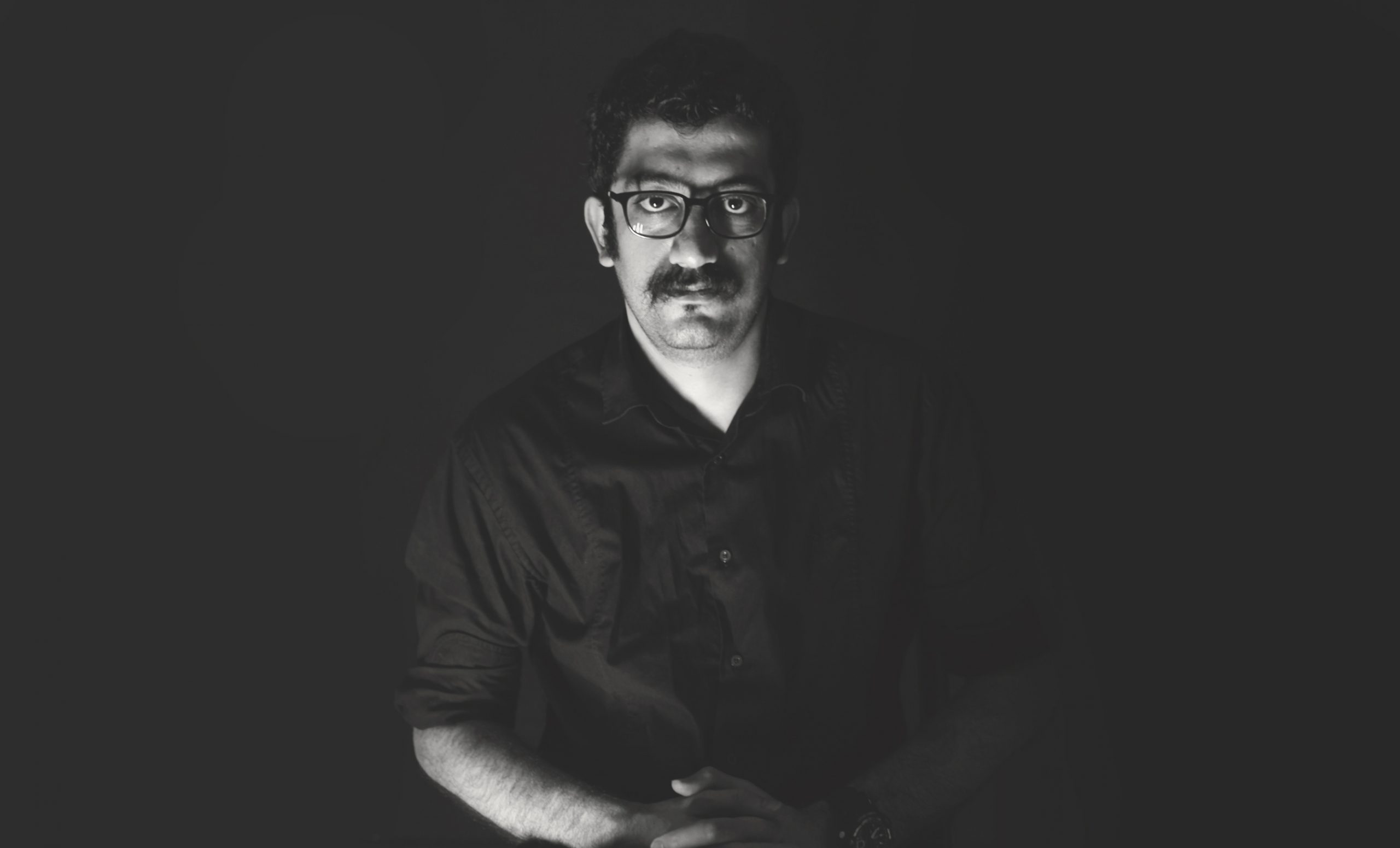[vc_row][vc_column][vc_single_image image=”114914″ img_size=”full”][/vc_column][/vc_row][vc_row][vc_column][vc_column_text]
Mehdi Rajabian is once again facing imprisonment. His crime? Including women’s voices in his music.
Rajabian is a musician in Iran, where women’s behaviour and expression – including their ability to sing in public or record their songs – is severely limited by the regime. But Rajabian has been determined to defy the authorities’ efforts to intimidate him, repress his art, and silence women’s voices. “I need female singing in my project,” Rajabian told Index on Censorship from his home in the northern city of Sari. “I do not censor myself.”
In August, Rajabian was summoned by the security police, who arrested him and took him to court. He was handcuffed and brought in front of a judge, who told him that the inclusion of women’s voices in his project “encouraged prostitution”. Rajabian was held in a prison cell for several hours but was able to post bail with the help of his family. He remains on probation and banned from producing music.
It is not the first time that the 30-year-old has faced imprisonment for his art. He spent three months blindfolded in solitary confinement in 2013, and was subsequently sentenced to six years in prison. He was released at the end of 2017 after undertaking a 40-day hunger strike. “I was completely sick after the hunger strike,” he explained. “When a prisoner goes on hunger strike, it indicates that he is preparing to fight with his life, that is, he has reached the finish line.”
After his release, Rajabian continued to make music and last year his album Middle Eastern was brought out by Sony Music. Every track on the album, which features more than 100 artists from across the Middle East, is accompanied by a painting by Kurdish artist and Index on Censorship award-winner Zehra Doğan.
But now Rajabian says that the pressure on him has become so great that it is extremely difficult for him to be able to collaborate with other musicians and to finish his next album. In August, a music journalist was arrested and detained in Evin Prison for several days after mentioning women’s music and referring to Rajabian in an article.
“Artists and ordinary people [in Iran] are all afraid to even talk to me,” he says. “I have been completely alone at home for years. Coronavirus days are normal for me.”
At home alone, he reads, watches films, and listens to music by John Barry. “I am currently reading Alba de Céspedes y Bertini’s books,” he told Index. But he spends most of his time reading philosophy. He believes that his interest in philosophy is one of the reasons why his music has been so targeted by the regime.
“The Iranian regime is not afraid of the music itself, it is afraid of the philosophy and message of music,” Rajabian explains. “Artists who do not have philosophy in their art are never under pressure.”
What does Rajabian believe the future has in store for him? “You can’t predict anything here. I am ready for any event and reaction,” he says. “But I still believe that we must fight and stand up”.
“I will continue to work, even if I return to prison,” he says. “I know that there is a prison sentence and torture for me, but I will definitely complete and publish [the album]. In Iran, making music is difficult for me because of the bans, but I have to make it.”
“Encourage banned artists,” Rajabian concludes. “They are not encouraged in their own countries. Be their voice.”
[/vc_column_text][/vc_column][/vc_row][vc_row][vc_column][three_column_post title=”You might also like to read” category_id=”71″][/vc_column][/vc_row]






